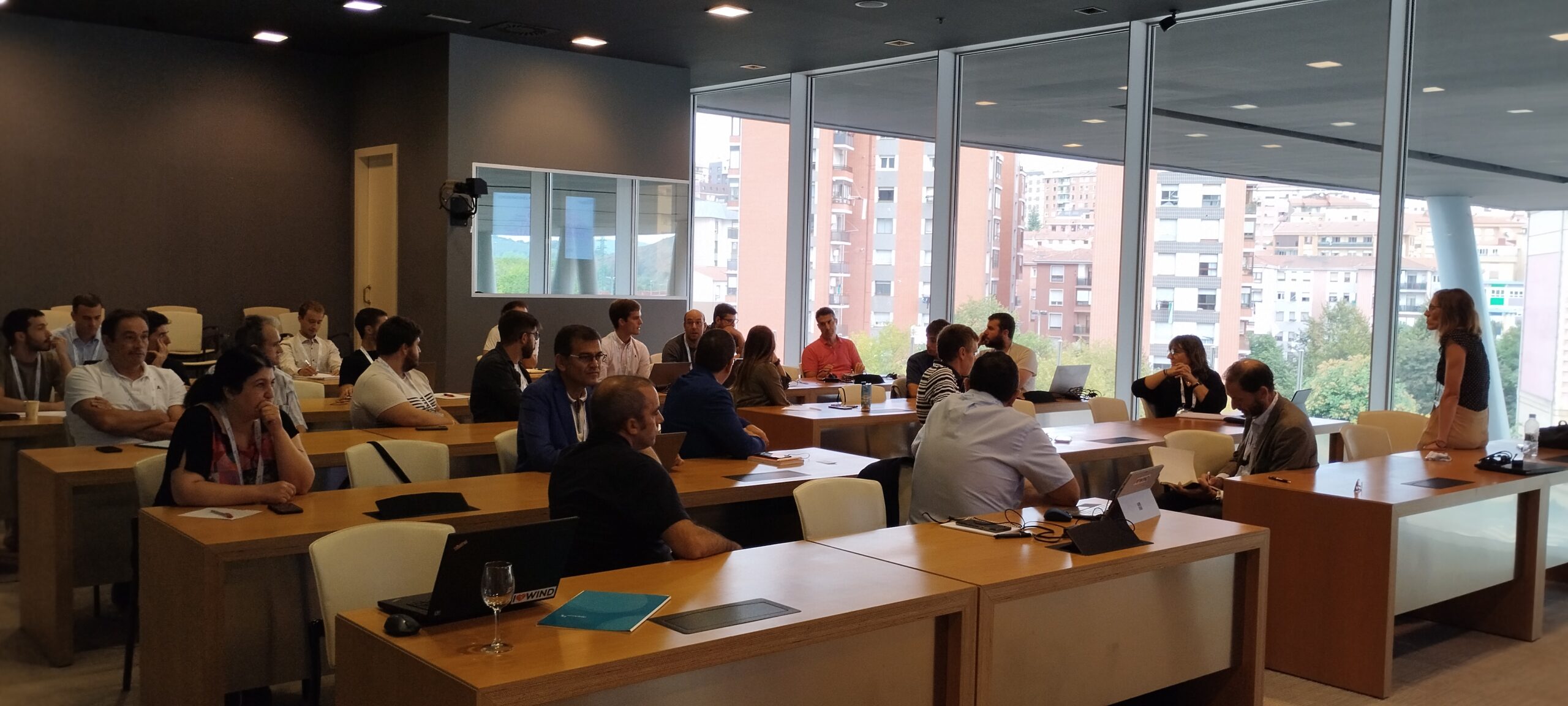On 15 September, the workshop for the dissemination and transfer of the results of the first year of development of the “Control co-design of floating renewable energies” (KONFLOT) project was held at the BEC (Barakaldo). It was attended by 24 representatives of 15 companies from the renewable energy value chains, who learned first-hand about the research carried out in the KONFLOT project and its progress, presented by the RVCTI agents developing the project: Tecnalia, Ikerlan, Mondragon Unibertsitatea, UPV/EHU and BCAM. This workshop is part of the Communication and dissemination activities of the project, coordinated by the Basque Energy Cluster.
The session began with an introduction by the Basque Energy Cluster, which presented the objectives of the Workshop and the contents to be addressed. Tecnalia then presented the objectives and main lines of research of the KONFLOT project.
After the 2 initial presentations, the attendees were divided into two groups, one for each of the case studies being worked on in the project: floating wind and wave energy.
In the case of wind energy, Tecnalia, UPV/EHU, Ikerlan and BCAM presented the progress made. Tecnalia explained the co-design of the control system for the platform, the mooring and the tower. UPV/EHU, presented its developments in optimisation algorithms and heuristics. Ikerlan, explained the co-design from the perspective of subsystems, where the case study was the hydraulic pitch system. Finally, bcam presented the acceleration of evolutionary algorithms to solve black box optimisation problems, where the black box is defined as the objective function without analytical expression and costly to evaluate.
In the room dealing with the wave energy case study, Mondragon Unibertsitatea presented the general structure of the co-design, the optimisation of the PTO, the sensitivity of the location, the interpolator and advanced modelling and the methodology used. BCAM presented the same results presented for the other case study on evolutionary algorithms to solve optimisation problems.
Throughout the session and after each presentation, there was time for questions and interaction with the audience. At the end of the session, there was a plenary session with a round of contributions and expressions of interest from the attending companies, in which the difficulties of implementing this type of control systems in floating wind turbines were discussed, without the involvement and collaboration of OEMs and other companies in the value chain.
1. General presentation KONFLOT. TECNALIA
3.Co-design from a sub-systems perspective. IKERLAN

